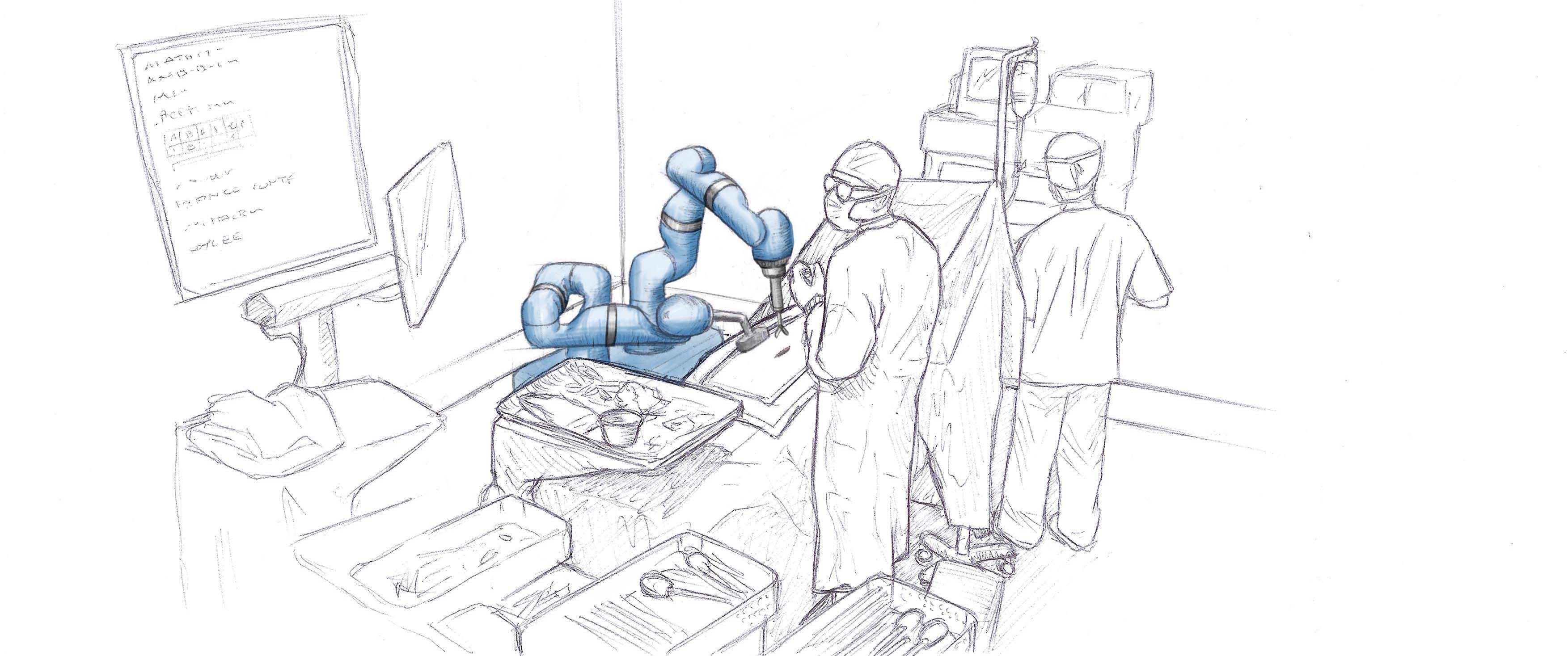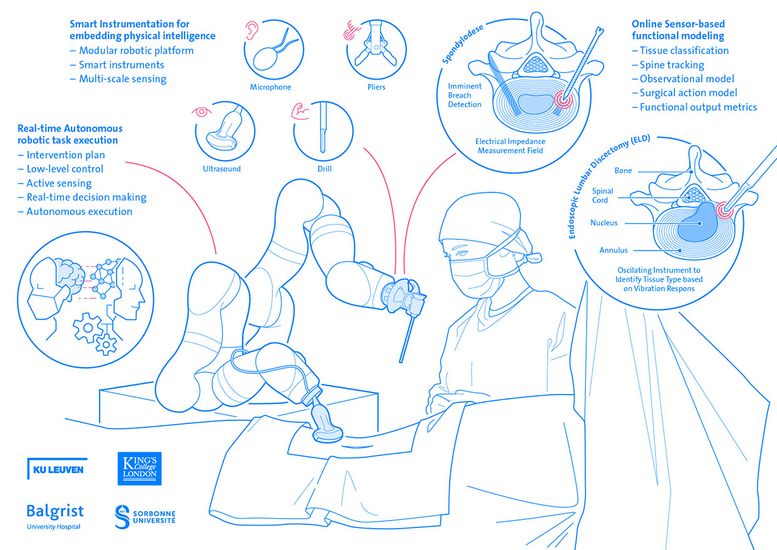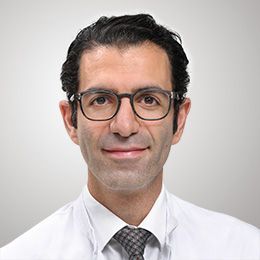
FAROS – Multisensory robotics
The «FAROS» project heralds a turnaround in conventional robotics: The robots navigation systems will be equipped with widefield mapping, auditory and haptic sensors. Surgeon-like autonomous behavior with physical and cognitive intelligence will be enabled. FAROS is referred as Functionally Accurate RObotic Surgery.
FAROS-Consortium
Balgrist University Hospital and University of Zürich, Switzerland
Philipp Fürnstahl, Professor for Orthopedic Research
Mazda Farshad, Medical Director and Professor and Chair for Orthopedic
Reto Sutter, Professor and Chief of Radiology
KU Leuven. Belgium
Emmanuel Vander Poorten, Professor for Surgical Robotics, Haptic Interfacing, Medical Devices, Surgical Training
King’s College London, Great Britain
Tom Vercauteren, Professor of Interventional Image Computing
Sorbonne University, France
Guillaume Morel, Professor of Robotics and Control
Surgeons make optimal use of all their senses to master difficult operations. When visibility on the anatomy is poor, they locate anatomy by palpation or they hear the optimal moment to stop drilling. Who would, today, entrust the own body to a surgeon that uses only direct vision, neglecting all the other information? Yet this is what the most advanced, semi-autonomous surgical robots of today focus on. Similar to autopilots, the robots follow a pre-defined path solely based on medical image data. But when things get difficult, they lack non-visual sensing capabilities and the human expert has to take over.
Developing the next generation
An international research collaboration now aims to develop surgical robots that access a broad range of sensing capabilities to master complex surgical tasks autonomously. To this end these robots will incorporate senses comparable or even superior to humans. The robots learn to sense through the tissue, they feel, listen, interpret and act. Overall, the ambition is to provide superior «functional» accuracy.
Surgeon-like autonomous behavior with physical and cognitive intelligence
The international research project foresees the following key elements: non-visual sensors that form a multifaceted representation of the surgical task; functional models that relate signals to functional parameters and controllers, that produce sensible autonomous robot actions optimizing functional performance. This new concept will be showcased and validated on complex spine surgeries.
«FAROS» a consortium of four universities
KU Leuven in Belgium, which is coordinating the project and driving the work in non-visual sensing, Sorbonne University in France, with a strong role in robotics, King's College London in England, which will lead the development of artificial intelligence, and Balgrist University Hospital of the University of Zurich, which will work clinically, experimentally and interdisciplinary to bridge robotics, computer science and clinical research. ungiert.
EU-Horizon 2020
The project has received funding from the European Union’s Horizon 2020 research and innovation programme under grant agreement No 101016985. «FAROS» will start with a three-year term on January 1, 2021. Horizon 2020 is the largest EU research and innovation program with almost €80B in funding and a term of seven years.




